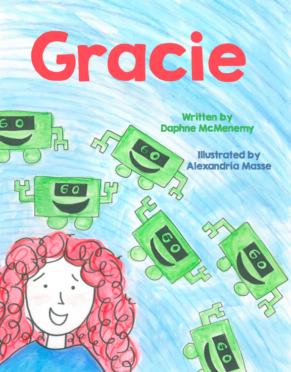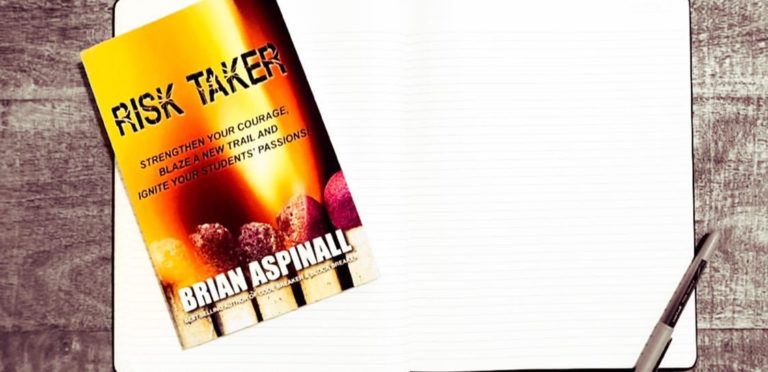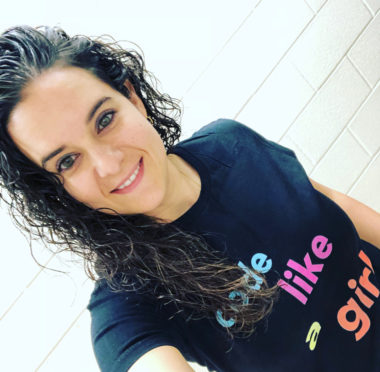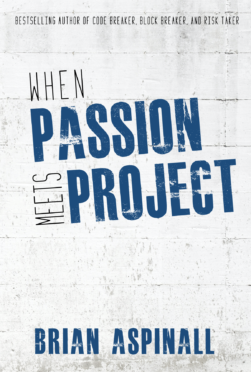My latest educational read has been Risk Taker by Brian Aspinall. The book is filled with relatable and thought-provoking stories and lessons written in a way only Brian can. When I read books like this, I often write down thoughts or quotes that leave an impression. So…here we are. In one of his accounts about his first year teaching he puts special emphasis on how he describes his students and the classroom.
My classroom. No, their classroom. No, OUR classroom.
At first read, this didn’t mean much to me. I assumed it was his way of thinking, and that was that. I didn’t see the importance of him mentioning this. That is until I started reflecting on my own experiences. I remembered a time when I was walking down the hall and overheard a student being told, “This is MY classroom. These are MY rules. If you don’t like them…” I knew that student. I knew the challenging behaviours. I experienced them. I probably said that too. I’ve been the frustrated teacher who’s yelled to get results, to no avail. I’ve been the authoritarian teacher who owns the classroom and makes the rules. That was a terrible year. What I’ve learned since however, is that when students feel connected to their learning and their learning environment, behaviour changes. I am in full control of how that happens. I haven’t learned this by watching, I’ve learned by doing.
John Hattie speaks about eight mind frames or “ways of thinking” and how “teachers and leaders who develop these ways of thinking are more likely to have major impacts on student learning”. He believes that teachers and leaders should engage in dialogue, not monologue. He says, “one of the difficulties of so much teacher talk is that it demonstrates to students that the teachers are the owners of the subject content, and controllers of the pacing and sequencing of learning”.
And there it is right there. When we move away from the monologue, from My Classroom, to dialogue, Our Classroom, things change. When students have ownership of their learning, a vested interested in and a connection to school and those people standing at the front of the room, learning changes, growth happens, mindsets change. I speak from experience. Some of the best learning I’ve ever received has been as a result of trying to figure out how to engage the disengaged, connect with the disconnected. The key, almost every time, was a shift in my mindset.
Our classroom.
As a child and young adult, Daphne was focused on becoming an educator with purpose, to improve the lives of her students and make an impact on their educational journey. As a primary teacher for the past 14 years, she has created opportunity for children in her classroom to explore learning in innovative ways. Using robots to support children as young as kindergarten age in discovering learning through coding, she assists them in developing numeracy, literacy and computational thinking skills through creative exploration. Daphne has a passion for STEM and credits interactive technologies for offering learning experiences that encourage growth-mindset, develop problem-solving skills and build perseverance. Her experience in the classroom has proven to support even the most hesitant learners in building confidence in their abilities and engaging in the learning process.
Her forward thinking and creative experiences have been shared with colleagues through informal networking, as well as cultivated opportunities to coach and support other educators in building their own technological competency at various educational levels. Daphne is committed to supporting student success, meeting students where they are, appreciating each individual, and finding opportunity to engage and motivate students in creative, innovative ways.
Check out her book “Gracie” on Amazon!



 For all the kids who grow up in a small town and think they don’t stand a chance. You do. I was once that kid.
For all the kids who grow up in a small town and think they don’t stand a chance. You do. I was once that kid.